Best Fintech Companies in Nigeria: Nigerian fintech companies are leading the way in Africa’s fintech revolution, and many of them have grown into strong contenders to be aware of. Nigeria has an intriguing fintech history that dates back to the nation’s early adoption of technology. Nigeria was among the first nations in Africa to adopt mobile phones, which contributed to the expansion of e-payment and mobile money services. One of the main reasons fintech took off in Nigeria was the country’s extensive mobile phone usage. This allowed consumers to obtain financial services via their phones rather than visiting a bank location.
This completely altered the landscape and paved the way for the expansion of online and mobile payment services. In the end, Nigerian fintech companies have a history of expansion and innovation. From its modest origins to the present, fintech has transformed the way financial services are supplied and made them easier for people of all ages and backgrounds. The Nigerian fintech scene is home to many innovative and young businesses that are revolutionizing financial services and money management.
Recommended: How To Spend More money and save less
Top 9 Best Fintech Companies in Nigeria
1. Remita: One of the earliest fintech firms in Nigeria, Remita offers a variety of payment solutions that are targeted at businesses, consumers, and developers. This effectively turns it into a one-stop shop for corporations, governments, and consumers across Africa to make payments. The Nigerian government has also selected Remita as the default payment channel for its Treasury Single Account, which is a consolidated framework for government bank accounts.
In 2005, Remita was introduced. Remita offers solutions for bills, taxes, utilities, payroll, and more. Additionally, it offers developers plugins, SDKs, and APIs to interface with Remita’s payment systems.
2. Interswitch: One of Nigeria’s two unicorns, Interswitch was founded in the early days of the financial industry and has been considering an IPO for some time. Following a minority investment from Visa in 2019 that was reportedly valued at US$200 million, its valuation skyrocketed to US$1 billion.
The business offers a wide range of digital financial solutions, such as card issuing, transactions, collection, and distribution. It has been developing blockchain-based infrastructure and recently introduced a digital address verification service through partnerships. This year, Interswitch debuted a corporate payment management platform for companies of all sizes.
3. OPay: Users can save money, conduct peer-to-peer transactions, and pay for utilities via OPay’s mobile money service. In addition, the company provides an offline banking solution so that customers without cellphones can still complete transactions.
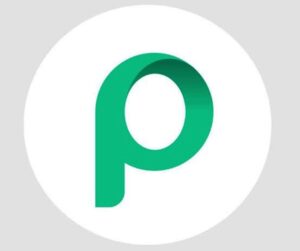
This year, OPay reached a US$2 billion valuation thanks to a $400 million fundraising round headed by the Japanese company SoftBank’s Vision Fund 2. Previous to this, the business raised $50 million and $120 million in Series A and B rounds, respectively, in 2019.
4. Carbon: Along with standard digital banking services like debit cards, Carbon is a CBN-licensed digital bank that also offers investment options and a lending facility. Accounts can be used to pay bills and recharge mobile devices in addition to making peer-to-peer payments. According to its website, Carbon presently has over two million customers.
The number was estimated by TechCrunch in an earlier report this year to be 659,000 customers in 2020. It handled over US$241 million in transactions last year, an 89% increase over 2019. Compared to the previous year, loans increased by 9.1% to US$63 million, while investments increased by 365% to US$32.5 million.
5. Paga: Tayo Oviosu founded Paga in 2009; however, it wasn’t released until 2011. You may make bank deposits, pay invoices, and even make payments at specific merchants using Paga. Customers use their mobile devices to conduct transactions with it, much like a mobile wallet.
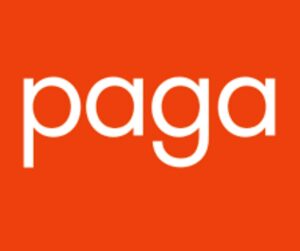
6. Flutterwave: In 2016, Olugbenga Agboola and Iyinoluwa Aboyeji founded Flutterwave. They also have an app by the name of Flutterwave called Barter. Anyone may create virtual credit cards and make online payments using this app. This company facilitates safe and easy payment acceptance for businesses all over the world.
Using Flutterwave, you can make payments at a physical point-of-sale terminal, on your computer, or on your phone. Not just in Nigeria, but throughout Africa, Flutterwave is one of the leading providers of financial services. Additionally, they provide a method for online credit and debit card payments to merchants. Conversely, Flutterwave is presently collaborating with Paypal to enable retailers to accept payments through Paypal and has agreements with over 40 African banks.
7. Paystack: Paystack is an online gateway that facilitates credit and debit card payments to Nigerian business owners. In Nigeria, the company has great popularity. Ezra Olubi and Shola Akinlade launched it in 2015. Paystack has connections to major e-commerce platforms, including Konga and Jumia. Paystack is also used by Domino, Taxify, and Bet9ja as a payment gateway.
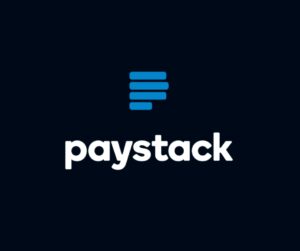
Another payment provider that makes it simple for companies to accept payments both in-person and online is Paystack. With Paystack, you may purchase movie tickets, pay your utility bills, and much more. Even if your clients don’t have credit or debit cards, you can still get paid fast by integrating Paystack’s payment gateway API into your websites. For this reason, Paystack stands as one of Nigeria’s Top 10 Fintech Companies and among the country’s top online payment gateways.
8. PiggyVest: PiggyVest assists users with investing and money management. It is situated in Nigeria’s Lagos. The company offers an app that enables users to invest and save money. Established in 2016, PiggyVest is a fintech enterprise situated in Lagos, Nigeria. It provides a digital platform for investing and saving money. Through the company, users may apply for loans, track their expenditure, and set up automatic savings plans.
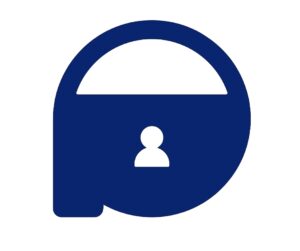
The business has been covered by TechCrunch, CNBC Africa, and Forbes. Nigeria’s first online savings platform is called PiggyVest. Through its website and mobile app, the platform has assisted Nigerians in saving money since 2016. Originally known as Piggybank, they then changed their name to PiggyVest to allow customers to save and invest money.
9. Kuda: Within the FinTech community, Kuda Bank is well-known. It will rank among Nigeria’s top 12 FinTech companies in 2022. You won’t have to worry about the fees associated with using traditional banks when you use Kuda Bank. There is no paper trail at Kuda Bank because everything is done online.
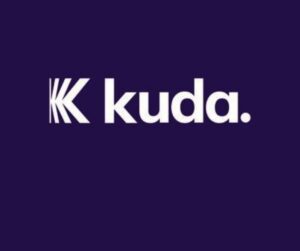
Moreover, opening an account just takes a few minutes because this bank operates exclusively online. Personalized Mastercard ATM cards are also available from this leading FinTech business in Nigeria, with no transaction fees or continuous maintenance expenses.
Additionally, deposits are free. Founded in 2018, Kuda is a digital-only bank with the goal of simplifying financial services for all users. In Nigeria, Kuda is the only bank that provides free bank accounts with no monthly costs. The business also offers investing, savings, and credit options. Kuda was named the top fintech start-up in Africa for 2019 by Fast Company. One of the greatest digital banks in Nigeria, Kuda Bank is well-known in the country. It’s also a highly regarded fintech business that has been featured in periodicals, received multiple accolades, and won. Additionally, Kuda has an overdraft facility that allows you to borrow money. It’s currently among Nigeria’s top loan applications.
Conclusively, Nigeria’s fintech industry has a significant impact on the nation’s economy by facilitating people’s access to necessary services in a more accessible and easy manner. As you can see, fintech is transforming the way consumers utilize financial services and manage their finances. Fintech firms give you the opportunity to grow your business, save time and effort, and protect your financial information. Thus, you should investigate what Nigerian fintech businesses have to offer if you want to manage your money and remain on top of your financial objectives. Everyone may now obtain financial services more easily and affordably, which is great news for the nation and for you personally.
 Skip to content
Skip to content


